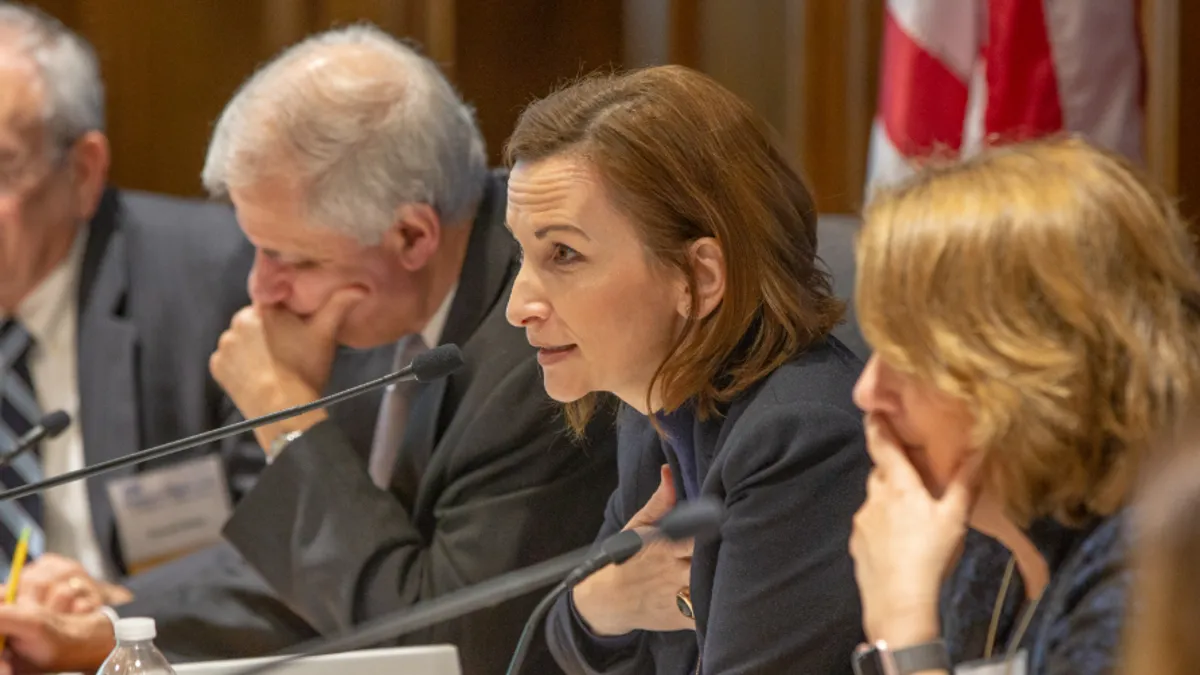Dive Brief:
-
Bank regulators Tuesday approved a 2016 rule requiring the nation's largest banks to set aside enough stable funds to cover their needs for a year.
-
The rule, known as the net stable funding ratio (NSFR), applies to large U.S. depository institution holding companies, depository institutions and U.S. intermediate holding companies of foreign banking organizations, each with total consolidated assets of $100 billion or more.
-
"By requiring banking organizations to maintain a stable funding profile, the final rule reduces liquidity risk in the financial sector and provides for a safer and more resilient financial system," the Federal Deposit Insurance Corp. (FDIC), the Office of the Comptroller of the Currency, (OCC) and the Federal Reserve wrote in a summary of the final rule.
Dive Insight:
The NSFR is a rule born out of the 2008 financial crisis as a global effort developed and agreed to by the Basel Committee on Banking Supervision. The rule applies to 20 of the nation's largest banks, according to Reuters.
Regulators have said most of the largest banks already meet the NSFR's demands, and the industry as a whole is more than $1 trillion above its liquidity needs, according to Bloomberg.
However, at least one bank — unidentified — needs to come up by 8%, and banks with liquidity shortfalls may require as much as $31 billion more in total, the regulators said.
In a shift, the final rule exempts Treasurys and reverse Treasury repurchases from the liquidity requirement.
Industry groups like the Bank Policy Institute (BPI) have criticized the liquidity requirement calling it "reckless."
The NSFR's treatment of Treasury securities would have exacerbated market volatility amid the sudden selloff of Treasury securities following the coronavirus outbreak in the spring, BPI's chief economist, Bill Nelson, told American Banker.
"[Treasury securities] serve as reliable sources of liquidity based on their high credit quality, and they serve a critically important role in supporting the smooth functioning of funding markets," FDIC Chair Jelena McWilliams said at the board's meeting Tuesday, according to American Banker.
FDIC board member Martin Gruenberg disagreed with the final rule, saying the NSFR weakens the earlier proposal and significantly narrows the scope of banks affected, according to Bloomberg.
The final rule doesn't fulfill what the U.S. agreed to at Basel, he said.












